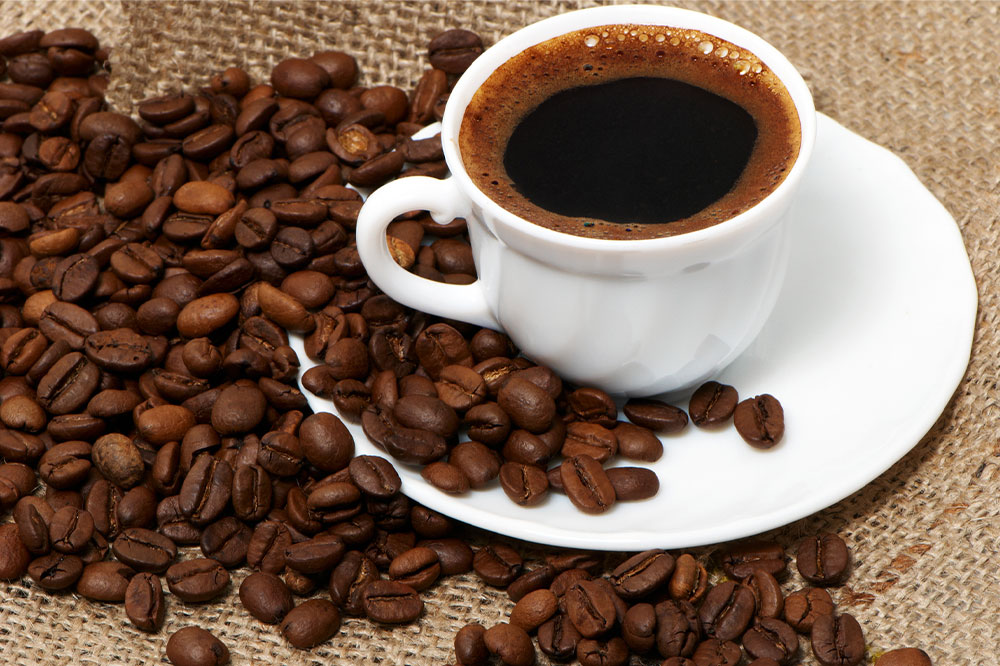Foods to Avoid for Managing Anxiety
Anxiety disorders affect over 40 million people in our country and are not easy to manage. Those experiencing chronic stress or anxiety spend a significant portion of their day on coping mechanisms like therapy, mindfulness practice, physical activity, and anti-anxiety treatments. However, patients often forget to follow a healthy nutrition plan. Specific foods and beverages like chips, cookies, and coffee temporarily relieve anxiety but may worsen the symptoms over time.

How food affects anxiety and stress?
Cortisol is a hormone the body produces when extremely stressed or worried. Increased levels of this hormone may lead to high blood pressure, rapid breathing, and increased heartbeat. Foods with low nutritional value, like processed meats, sugary foods, and coffee, can raise cortisol levels, worsening anxiety symptoms. On the other hand, healthy meals high in essential minerals and vitamins help maintain healthy cortisol levels, thus managing stress and anxiety.
It is important to note that high cortisol may not only aggravate anxiety disorder symptoms but also increase the risk of metabolic syndromes, cardiovascular disease, type 2 diabetes, depression, and other conditions.
Foods to avoid with anxiety
The following are a few foods to avoid with an anxiety disorder to manage the symptoms better:
Caffeine
Caffeine can be found in various foods and beverages, including coffee, tea, energy drinks, and chocolate. Consuming limited amounts of caffeine helps individuals stay focused and energized, but too much of this compound can overstimulate the central nervous system, worsening anxiety symptoms like heart palpitations, tremors, and insomnia. Caffeine can also inhibit the absorption of vitamins, particularly B vitamins, which are necessary for relaxation and mood management. Therefore, individuals must avoid the caffeine-rich foods and beverages mentioned above.
Sugar
Saying no to sugary treats can be challenging, but doing so is necessary for those suffering from an anxiety disorder. When a person eats sugar-based foods, their blood sugar rises sharply, providing a burst of energy. However, this effect does not last long because the body produces extra insulin to lower blood glucose. Once blood sugar levels normalize, one may feel tired. This fluctuation of energy levels can affect mood and worsen anxiety symptoms. Therefore, candy, cake, and ice cream are among the worst anxiety foods to avoid.
Fried foods
Many people resort to junk food and fried items like pizza, fried chicken, hamburgers, and fries to save time cooking at home. While it might seem like an easy solution, these foods are hard to digest and provide little nutritional benefit. Moreover, they cause gas, acid reflux, and long-term gastrointestinal problems like GERD, which can induce anxiety-like symptoms. Some people complain that fried foods make them feel choked, causing them to wake up in the middle of the night gasping for air.
Refined carbohydrates
Refined carbs in white bread, pasta, white rice, and specific breakfast cereals may increase the risk of life-threatening conditions like diabetes and heart disease. This is because most of the fiber and minerals in these foods are eliminated during the refining process. While refined carbs may also aggravate anxiety, further research is required to prove their effects. According to a 2019 study, refined grains consumption was connected to anxiety and unhappiness in women.
Food additives
Food additives like aspartame, monosodium glutamate (MSG), and food colors are best avoided to prevent and manage anxiety disorders. Aspartame—an artificial sweetener found in items like sugar-free candies, chewing gum, and soft drinks—has been linked to an increased risk of anxiety. MSG—a flavor enhancer often added to processed foods, ready-to-eat foods, and snacks—has been linked to fatigue, headaches, depression, and anxiety. Some food colors found in cheese, beverages, sweets, and other processed foods have been linked to anxiety and mood swings.
Processed food
Processed foods, such as cheeses, cured meats, and canned soups, contain high quantities of salt. Excessive salt intake raises blood pressure and strains the heart, causing the body to produce adrenaline. This hormone can worsen anxiety symptoms. On another note, many food cans and containers used to pack processed foods have bisphenol A (BPA), a chemical linked to changes in blood pressure and mood. Research into this chemical’s possible hazards is ongoing, but several experts believe BPA can penetrate food or drink and have severe implications.
Individuals should avoid these foods if they have anxiety. A health professional may recommend specific other foods that one may include in the meal plan.
Who to eat instead?
Besides learning about the foods to avoid during anxiety flare-ups, patients should know what they can eat safely. Certain foods may reduce anxiety and stress and help people manage their symptoms better. Some options that help alleviate this condition are:
- Fermented foods like pickled vegetables, miso, and kombucha
- Spices like black pepper and turmeric
- Herbal teas like chamomile, lavender, and passion flower
- Fruits like blueberries, oranges, and avocados
- Vegetables like kale and asparagus
Healthy nutrition is necessary for controlling anxiety, depression, and chronic mental health disorders. Interestingly, food allergies can also trigger several unpleasant symptoms that mimic anxiety, so it is critical to consult a doctor if one believes a particular food is making them feel ill. Besides avoiding anxiety-causing foods and opting for healthier alternatives, patients may exercise and perform meditation to relax.